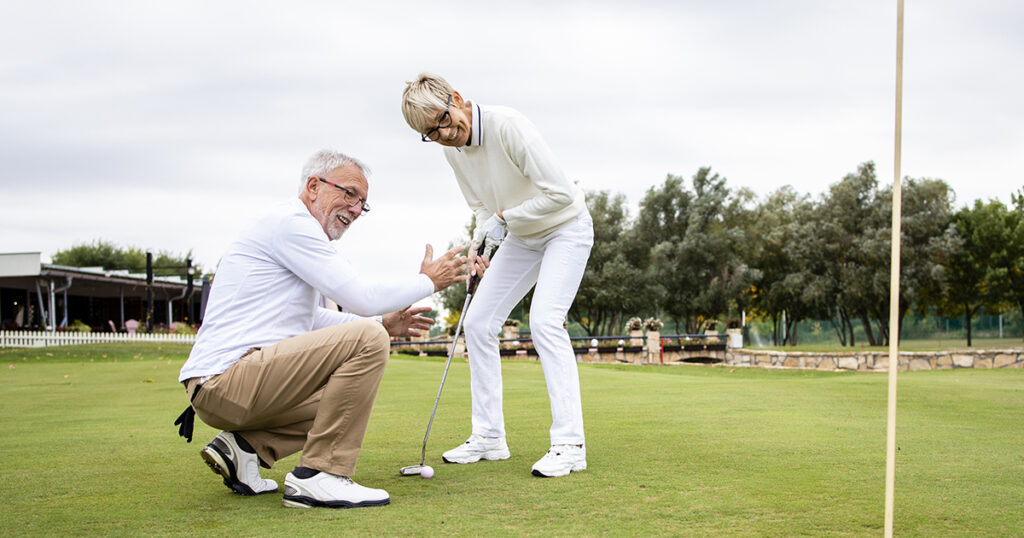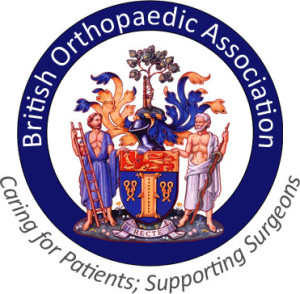If knee pain or reduced mobility from osteoarthritis or injury is affecting your quality of life, a knee replacement could offer the relief you need – but which option is right for you, a total knee replacement or a partial knee replacement?
In this article, we’ll explore their key differences, helping you make an informed decision about your treatment.
What is a knee replacement?
A knee replacement involves removing damaged or worn-out parts of the knee joint and replacing them with artificial components, called prosthetics. This surgery is designed to reduce pain, improve function and restore your ability to perform daily activities.
Mr Shah specialises in treating hip and knee conditions and has performed thousands of knee replacements, including complex revision knee replacements.
The difference between total and partial knee replacements
A total knee replacement (TKR) involves replacing the entire knee joint. This includes resurfacing the ends of both the femur (thighbone) and tibia (shinbone), as well as the underside of the kneecap. TKR is typically recommended for patients with extensive arthritis or damage across multiple areas of the knee joint.
A partial knee replacement (PKR), on the other hand, targets only one part of the knee joint – most commonly the inner (medial) compartment. PKR can be a good choice for patients with damage in a single area, allowing for less invasive surgery and often a quicker recovery.
When is total knee replacement the right choice?
A total knee replacement is usually recommended in the following situations:
- When arthritis affects multiple areas of the knee. If arthritis or damage impacts more than one part of the knee joint, a TKR provides a comprehensive solution by replacing the entire joint.
- For advanced osteoarthritis or extensive knee damage. Patients with severe arthritis often benefit most from a TKR as it restores stability and function throughout the knee.
- When previous knee surgeries have been unsuccessful. For those who have tried other treatments or surgeries without relief, a TKR can offer long-lasting results.
The benefits of partial knee replacement
Partial knee replacement may be a better option for patients with isolated damage in one area of the knee. Benefits include:
- A shorter recovery time. PKR is less invasive, often leading to faster recovery and a quicker return to daily activities.
- A reduced risk of complications. With less disruption to surrounding tissue, patients may experience lower risks of infection, blood clots and other complications.
- Preservation of natural movement. Since only one area of the knee is replaced, PKR typically retains more of the knee’s natural motion.
Recovery time and rehabilitation
While both total and partial knee replacements require physical therapy and recovery, the timeline can vary.
- Partial knee replacement patients often resume light activities within a few weeks and experience a shorter rehabilitation period.
- Total knee replacement recovery may take longer, with most patients returning to normal activities within three to six months. Rehabilitation plays a critical role in achieving the best outcome and strengthening the knee joint.
Choosing the right surgery for you
Deciding between a total and partial knee replacement depends on factors such as the extent of knee damage, lifestyle, age and overall health. During your consultation, Mr Shah will conduct a thorough examination, review your medical history and discuss your specific needs and goals to determine the best treatment option.
Are there risks?
Both total and partial knee replacements carry risks, including infection, blood clots and prosthetic wear over time. However, advancements in surgical techniques and materials have significantly improved safety and outcomes for patients undergoing knee replacements. Mr Shah prioritises a personalised approach to minimise risks and ensure the best possible outcome for each patient.
When to consider knee replacement surgery
If knee pain is affecting your quality of life, limiting your ability to move comfortably or hindering your daily activities, it may be time to explore knee replacement options. Early intervention and personalised treatment can lead to long-term relief and enhanced mobility.
For expert guidance on knee replacement options, schedule a consultation with Mr Shah at Goring Hall Hospital. With years of experience and dedication to orthopaedic care, he will guide you towards the most suitable treatment to restore your comfort, mobility and quality of life.



